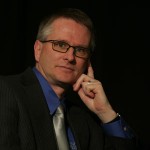“Remember the LORD your God, for it is he who gives you the ability to produce wealth.” (Deut 8:18)
The Bible talks about wealth in three ways; one is bad and two are good. Hoarding of wealth is condemned. Sharing of wealth is encouraged. But there is no wealth to be shared unless it has been created.
Wealth is not a zero-sum game. Different kinds of wealth can and should be created, and can increase. All too often in the church the issue of wealth creation is misunderstood, neglected, or even rejected. The same thing applies to wealth creators.
Wealth creation is both a godly gift and a godly command (Deut 8). The people of Israel were commanded to seize business opportunities in mining and agriculture, and as a result the nation would prosper. However, God reminded them that wealth creation was a gift from him. It should be done in community and for community, recognizing the covenant, being accountable to God, and being mindful of blessing all peoples.
Wealth creation in and through business is beyond corporate philanthropy. Businesses do not exist to simply give away profit. They primarily exist to create different kinds of wealth for people and societies. It is not only about financial wealth, but also social, cultural, intellectual, and spiritual wealth.
We often associate businesses doing good with micro-lending programs. But the gift and calling to create wealth is beyond a micro finance loan or a single small or medium size business; it is about building nations, and seeking the welfare of cities:
“This is what the Lord Almighty says to all those I carried into exile from Jerusalem to Babylon: Build houses and settle down; plant gardens and eat what they produce. Also, seek the peace and prosperity of the city.” (Jer. 29)
God is a God of flourishing and abundance, and it is clearly reflected in creation. I watched a program on the Smithsonian Channel the other week about beetles. There are 360,000 known species, but the experts assume there are a million or so more.
When I visited Panama in October last year I was told that there are 18,000 different kinds of butterflies. My wife and I like to stroll in the Botanic Garden here in Singapore. There is a special orchid garden. Did you know that there are 30,000 different kinds of orchids? This is not scarcity or simplicity, which is often held up as a biblical virtue. Rather, this is the Creator at work, things are flourishing in abundance. In a similar way, we are to co-create with God in the marketplace.
The biggest lift out of poverty, in the history of mankind, has happened in our generation. It has not been through aid or development (i.e. wealth distribution), but through business (i.e. wealth creation). In 1990 more than every third person on this planet was poor. Now it is less than ten percent, according to the World Bank.
The issues of wealth creation and distribution were discussed as part of the Lausanne Global Consultation on Prosperity Theology, Poverty and the Gospel held in Atibaia, Brazil in 2014. The consultation affirmed that sharing wealth is good and Biblical, but wealth distribution is too often our main response to meeting peoples’ needs. We identified the need to increasingly seek to understand how businesses can bring solutions to global issues, including poverty and human trafficking. The notion of simplicity as a universal value was also challenged, and certainly needs to be addressed further.
To that end, the Lausanne Movement and BAM Global are organizing a Global Consultation on Wealth Creation for Holistic Transformation to explore the role of wealth creation in bringing about holistic transformation of people and societies – for the greater glory of God.
About 30 leaders, from all continents, in business, academia, church and missions, have already been working for months in seven sub-groups discussing various aspects of wealth creation. Between 7-11 March we will convene in Chiang Mai, Thailand for further deliberations on the issue. Some of the tangible outcomes of this consultation will be reports, a book, and videos – all intended to equip the church around the world.
Please pray for wisdom as we meet. Pray also as we continue to work post-Consultation to finalize the materials that will be published.
Note: This Consultation builds upon reports from the BAM Global Think Tank and the Lausanne Global Consultation on Prosperity Theology, Poverty and the Gospel. The following texts form a context and give direction for the Lausanne Global Consultation on Wealth Creation for Holistic Transformation. These were initial required reading for all participants.
- Atibaia Statement
- Why Bother with Business as Mission, by Mats Tunehag
- BAM Think Tank Reports

